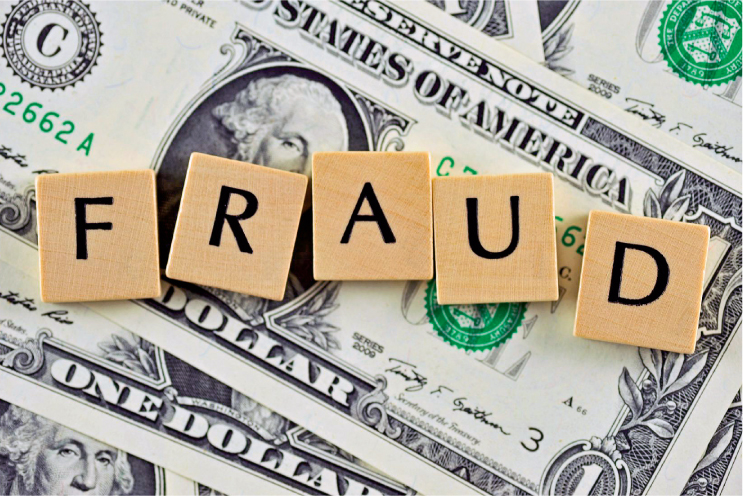 Seven Detroit firefighters were seriously injured when an office building engulfed in a gasoline-fueled fire collapsed on them. One was paralyzed and several had crushed bones. The man who set the fire did so for a very "simple" reason: the insurance money.
Seven Detroit firefighters were seriously injured when an office building engulfed in a gasoline-fueled fire collapsed on them. One was paralyzed and several had crushed bones. The man who set the fire did so for a very "simple" reason: the insurance money.
A New York man had the idea to torch both his home and his convertible, all for the insurance money. According to police reports, the man claimed the blaze started when pans on his stove ignited. After trying to extinguish the fire with a rag, he said he threw the first pan out the door, where it landed in the backseat of his convertible, which burst into flames. Then while en route to tossing the second pan outside, he tripped and the pan landed on his couch.
The risk to life can be high in the name of insurance fraud and the economic toll can be enormous. Half of property-casualty companies report that between 11 cents and 30 cents or more of each premium dollar is lost to "soft" fraud alone. The Coalition Against Insurance Fraud estimates that fraud for all types of insurance costs $80 billion annually, making it the second-largest economic crime in the U.S. after tax evasion.
We'll never completely wipe out insurance fraud; people who seek to gain at the expense of everyone else will continue to exist, as will those who convince themselves that the only victim is a faceless insurance company. There was a time not too long ago when insurance fraud was perfectly acceptable among policyholders: "Hey, I've paid for insurance my entire life; what's wrong with padding the bill once in awhile?"
We all know the saying "knowledge is power." Knowledge is what makes or breaks a government or an industry. When there is misrepresentation, it is up to the people or the organization involved to correct it. For insurance fraud, our industry is responsible for educating consumers on how all that bill padding or those extra few dollars added to a claim translate to higher rates for everyone. No one else is going to do it.
According to the Insurance Research Council (IRC) public opinion study released in March, nearly one-quarter of Americans believe it is acceptable to increase an insurance claim by a small amount to make up for deductibles they are required to pay. While this is lower than the 33 percent the IRC found in a 2002 telephone survey, it is still disturbing. Even more disturbing are the responses from the younger generation—those in the 18 to 34 group—particularly males. An astounding 23 percent of young men have no problem with defrauding an insurance company. This compares to only 5 percent of older men, and 8 percent of women in the same 18-to-34 age bracket.
There was some positive news coming from the study: people are beginning to understand that insurance fraud costs them money. The IRC study found that 86 percent of Americans agreed with the statement, "Insurance fraud leads to higher rates for everyone." Unfortunately, 10 percent believed that "insurance fraud doesn't hurt anyone." The Insurance Information Institute puts fraud at about 10 percent.
The little white lies that crop up from time to time on insurance claims aren't so little. They have amounted to billions of dollars in losses each year. During the 5-year period from 2007 to 2011, property-casualty insurance fraud had cost the industry approximately $32 billion each year, causing most economic damage to health, workers' compensation, and auto insurance lines of business.
The National Insurance Crime Bureau, an organization that reviews and investigates questionable insurance claims, found that such claims were up 16 percent last year to a record 116,268, compared to the 100,450 from the year before. Auto insurance saw a rise of 15 percent in questionable claims—34,585—from the year prior, and questionable property insurance claims increased 39 percent in 2012 over the previous year. It seems that as more Americans realize that lying on a claim form is a crime, the swindlers who make a good living from it are getting better at their "job."
It wasn't until the 1980s that insurance fraud began to make a blip on anti-crime radars. Rising insurance costs and growth in organized fraud groups catapulted the effort to pass stronger antifraud laws, but that wasn't—and isn't—enough to end the crime of insurance fraud. Insurers, agents and brokers, and industry groups must educate policyholders and the general public about the importance of insurance, how it works, and how the crime of fraud, whether "soft" or "hard," affects every American.
Every policyholder should see how much extra he or she must pay because of bogus claims or when a claimant wants to add "just a few dollars" to make up for his or her deductible. As we do that, and as those same consumers see the effect of fraud on their pocketbooks, we can finally help them understand that insurance fraud is not something that "doesn't hurt anyone." Once they understand, consumers will see that padded claims and other forms of fraud are theft, plain and simple, and that they themselves are the victims.
Property-casualty insurance is a cornerstone of worldwide commerce. Much of the American economy would grind to a halt without it. Factories, stores, and offices could not face the risk of operating without it. Most individuals would be unable to finance their homes, and many would have difficulty arranging credit for other big-ticket items. Those who could would still face the possibility of financial ruin if they were sued or were involved in serious accidents. Thus, a healthy property-casualty insurance industry is essential to the vitality of the economy and necessary for the security of our nation's people.
Insurance fraud, in all of its many forms, chips away at that economic foundation. In making coverage more expensive for everyone, it increases the chances that a driver will try to escape paying for required liability coverage, or that a young couple will have to risk going without certain coverages for their new home because they can only afford the most basic policy.
Related: Read "5 Steps to a Better Fraud Detection Program"
Want to continue reading?
Become a Free PropertyCasualty360 Digital Reader
Your access to unlimited PropertyCasualty360 content isn’t changing.
Once you are an ALM digital member, you’ll receive:
- Breaking insurance news and analysis, on-site and via our newsletters and custom alerts
- Weekly Insurance Speak podcast featuring exclusive interviews with industry leaders
- Educational webcasts, white papers, and ebooks from industry thought leaders
- Critical converage of the employee benefits and financial advisory markets on our other ALM sites, BenefitsPRO and ThinkAdvisor
Already have an account? Sign In Now
© 2024 ALM Global, LLC, All Rights Reserved. Request academic re-use from www.copyright.com. All other uses, submit a request to [email protected]. For more information visit Asset & Logo Licensing.








